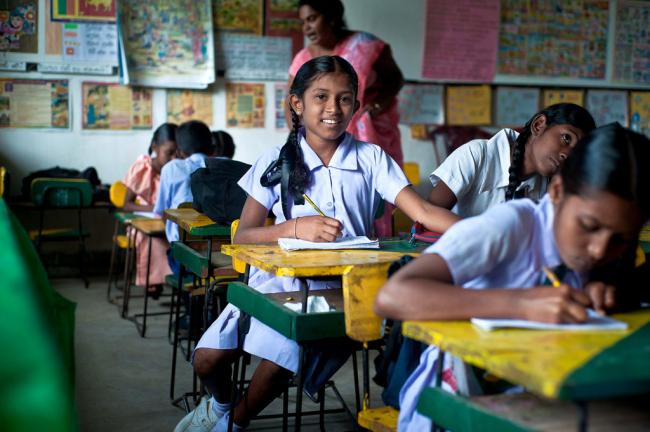
Millions could escape poverty by finishing secondary education, says UN cultural agency
“The new analysis on education's far-reaching benefits released on Thursday should be good news for all those working on the Sustainable Development Goal to eradicate poverty by 2030,” said Irina Bokova, Director-General of the UN Educational, Scientific and Cultural Organization (UNESCO).
“It shows that we have a concrete plan to ensure people no longer have to live on barely a few dollars a day, and that plan has education at its heart,” she added.
Based on the effects that education had on growth and poverty reduction in developing countries from 1965 to 2010, the new analysis by UNESCO's Global Education Monitoring (GEM) Report team, shows that nearly 60 million people could escape poverty if all adults had just two more years of schooling.
“If all adults completed secondary education, 420 million could be lifted out of poverty, reducing the total number of poor people by more than half globally and by almost two-thirds in sub-Saharan Africa and South Asia,” according to UNESCO.
The paper, from the UNESCO Institute for Statistics (UIS) on reducing global poverty through universal primary and secondary education, is being released ahead of the UN High Level Political Forum (HLPF) which will be held in New York from 10 to 19 July and focuses on poverty eradication in pursuit of the 2030 Agenda for Sustainable Development. It demonstrates the importance of recognizing education as a core lever for ending poverty in all its forms, everywhere.
Studies have shown that education has direct and indirect impacts on both economic growth and poverty. It provides skills that boost employment opportunities and incomes while helping to protect from socio-economic vulnerabilities. An equitable expansion of education is likely to reduce inequality, lifting the poorest from the bottom of the ladder.
However, if current trends continue, of the 61 million primary school age children currently out of school, 17 million will never to set foot in a classroom – one in three of whom live in sub-Saharan Africa, Western Asia and Northern Africa, and more than one in four of those in Central Asia and Southern Asia.
Moreover, girls in poor countries continue to face particularly steep barriers to education.
While UNESCO underscores that education must reach the poorest in order to maximize its benefits and reduce income inequality, according to the GEM Report, children from the poorest 20 per cent of families are eight times as likely to be out of school as children from the richest 20 per cent in lower-middle-income countries.
The paper stresses the need to reduce the direct and indirect costs of education for families.
Photo: Deshan Tennekoon/World Bank
Support Our Journalism
We cannot do without you.. your contribution supports unbiased journalism
IBNS is not driven by any ism- not wokeism, not racism, not skewed secularism, not hyper right-wing or left liberal ideals, nor by any hardline religious beliefs or hyper nationalism. We want to serve you good old objective news, as they are. We do not judge or preach. We let people decide for themselves. We only try to present factual and well-sourced news.







